Additions
Amputation Accommodation
Description
- Block built for surgically or trauma induced amputation of forefoot anatomy
Location
- Missing anatomy
Material
- EVA block
Indications
- Surgically or trauma induced amputation of forefoot anatomy
Contraindications
- No missing anatomy
- No accommodation required if missing middle digits or 5th only
Cuboid Pad
Description
- For Chronically sub fluxing cuboid
Location
- Sub base of 5th metatarsal/cuboid
Material
- 3mm EVANote: Custom orthoses will most often support the lateral column adequately as the contour of the LLA is captured in the negative cast
Indications
- Chronically sub fluxing cuboid
Contraindications
- Inappropriate use may prematurely lock calcaneal-cuboid joint, possibly resulting in midtarsal ligament strain, cuboid contusion, and/or lateral plantar nerve entrapment
Dancer's Pad
Description
- For Sesamoiditis, fractured or contused sesamoids
Location
- Forefoot extension starting at the base of the metatarsals, extending to level of sulcus with a cutout to the 1st MPJ (1st Met cutout in shell automatically performed with this addition)
Material
- 3mm Cushion Cork extension to sulcus
Indications
- Rigid, severely plantar flexed 1st ray
- Sesamoiditis
- Fractures sesamoid
- Contused sesamoid
Contraindications
- Hallux rigidus/limitus
- 1st MPJ O/A
Forefoot Extensions
Description
- Extension from end of device to sulcus or toes to provide extra forefoot cushioning
Location
- Distal from edge of device to sulcus or to toes, as requested
- Feathered to reduce bulk
Material
- Per work order. Available choices include Poron, EVA, ReKoil, etc in various thicknesses ranging from 1.5 mm to 6 mm. See Covers page for more details on Forefoot Extension choices.
Indications
- Reduced fibro-fatty pad under MPJs
- O/A
- Frequently used to manufacture other additions
Contraindications
- insufficient room in the footwear to accommodate additional thickness
Hallux Rigidus Splint
Description
- Padding placed in the heel of the orthotics to protect the heel and add comfort
Location
- Inside heel cavity of orthotic
Material
- Orthotic shell
- Heel plug (3 or 6 mm)
Indications
- Heel spur
- Reduced fibro-fatty pad
Contraindications
- No extrinsic rear foot stabilizer
Heel Lifts
Description
- Additional material added to the bottom of the device in the heel area to increase heel height
Location
- Bottom of device in the heel area
Material
- 55 durometer EVA in requested thickness (maximum 12 mm)
Indications
- Leg length discrepancy
Contraindications
- Footwear which cannot accommodate the additional height of the device. (most extra depth shoes can accommodate 6 mm)
Heel Plugs
Description
- Padding placed in the heel of the orthotics to protect the heel and add comfort (also known as Heel Spur Accommodation)
Location
- Inside heel cavity of orthotic
- Medial calcaneal
- Tubercle
Material
- Cavity in shell material, filled with Poron and contoured to shape of heel cupl
- Heel plug (3 or 6 mm)
Indications
- Heel spur
- Reduced fibro-fatty pad
Contraindications
- No extrinsic rear foot stabilizer
Horseshoe Spur
Description
- For heel spur and reduced fibro-fatty pad
Location
- As heel pad, “u-shaped” cutout in area of medial calcaneal tubercle
Material
- 3mm Poron, tapered at edges with a “u-shaped” cutout to medial calcaneal tubercle
Indications
- Heel spur
- Reduced fibro-fatty pad
Contraindications
- No extrinsic rear foot stabilizer
Kinetic Wedge
also known as Hallux Limitus
Description
- For functional hallux limitus
- Cutout to relieve pressure on the first met head as well as its sesamoid bones.
- Can be used to pre-load the first met head resulting in increased mobility
Location
- Applied form distal/plantar aspect of shell to sulcus, trapezioid-shaped cut out to 1st MPJ (1st Met cutout in shell automatically performed with this addition)
- Functional hallux limitus: (Normal 1st MPJ ROM non-weight-bearing becomes reduced when weight-bearing dorsiflexes 1st ray)
Material
- 3 mm EVA
Indications
- Hallux limitus
Contraindications
- Anatomical hallux rigidus/limitus 1st MPJ O/A with osteophytic lipping
Lateral Arch Fill
Description
- Padding placed in the heel of the orthotics to protect the heel and add comfort
Location
- Inside heel cavity of orthotic
Material
- Orthotic shell
- Heel plug (3 or 6 mm)
Indications
- Heel spur
- Reduced fibro-fatty pad
Contraindications
- No extrinsic rear foot stabilizer
Met Bars
Description
- Metatarsal domes for metatarsalgia and forefoot callusing
Location
- Centered on the 2-4 metatarsal with the thickest portion in line with the edge of the orthotic
Material
- Orthotic shell
- Met pad (3-10 mm and sm, med, lg and poron or v-phoam)
Indications
- Metatarsalgia
- Forefoot callousing
Met Pads
Description
- Metatarsal domes for reduced transverse arch, EVA or Poron pad placed strategically under mets to raise them and stop them from dropping down
Location
- Centered on the 3rd metatarsal with the thickest portion in line with the edge of the orthotic
Material
- Orthotic shell
- Met pad (3-10 mm and sm, med, lg and poron or v-foam)
- tear drop shaped
Indications
- Reduced transverse arch
- Metatarsalgia
- Dropped lesser metatarsal
- Forefoot callousing
- Interdigital neuroma
- Intermetatarsal-phalangeal bursitis
Contraindications
- Rigid or immobile forefoot
Met Cutout
Description
- Cutout of sulcus to relive pressure for persistent and painful corns, calluses or plantar warts or dropped mets
Location
- Forefoot extension tapered onto distal-dorsal aspect of shell extending to level of sulcus (1-5) with cutout to lesion site (as marked on negative cast or on work order)
Material
- 3 mm 55 durometer EVA or Poron (6 mm if requested)
Indications
- Persistent/painful corn, callus or plantar warts
- Dropped metatarsal-phalangeal joint
Contraindications
- Footwear that cannot adequately accommodate the added forefoot thickness
Morton's Extension
Description
- Extension along 1st met for short metatarsal in relation to length of 4th/5th metatarsals
Location
- Along 1st phalanges
- Sub 1st meta tarsal-phalangeal joint extending from distal end of shell to sulcus
Material
- 3 mm EVA
Indications
- Short 1st metatarsal in relation to length of 4th/5th metatarsals
- Dorsiflexed 1st ray
- Hallux limitus (mild)
Contraindications
- Long 2nd metatarsal in relation to all metatarsals
Neuroma Pad
Description
- pad for interdigital neuroma and intermetatarsal bursitis
Location
- Centered between 3rd-4th metatarsals (unless otherwise specified)
Material
- 3 mm Poron
Indications
- Interdigital Neuroma
- Intermetatarsal bursitis
Reverse Morton's Extension
Also known as a 2-5 Bar
Description
- Soft extension under 2-5 metatarsals for plantar-flexed 1st ray
Location
- Applied to distal/dorsal aspect of shell to level of sulcus 2-5 MPJ (no EVA sub 1st MPJ)
Material
- 55 durometer EVA – 3 mm
Indications
- Plantar-flexed 1st ray
Contraindications
- Hallux limitus/rigidus
Scaphoid Pad
Description
- Material placed under the top cover to add extra cushion/support to the medial longitudinal arch of the foot
Location
- Material applied to the shell along the medial longitudinal arch of the foot
- Feathered out from the high spot of the arch to surrounding area
Material
- 3 mm V-Phoam or Poron by special request
Indications
- Pes cavus foot with high arch sensitivity where direct shell contact is not tolerated
Contraindications
- ?
Toe Crest/Sulcus Crest
Description
- Pad that supports the central segments of 2-5 digits
Location
- Applied in area of sulcus to support the central segments of 2-5 digits
Material
- 6 mm Poron or EVA, tapered and reduces to follow anatomy
Indications
- Fixed clawed/hammer toe deformities
- Apical lesions (corn, callus, ulcerations due to pressure)
Contraindications
- Top length cover less than ‘to toes’
Partner With Us Today!
Get in touch with us at 705-342-7728 or at info@soundorthotics.com to find out more about how we can work with you to help your patients achieve pain-free, active living.

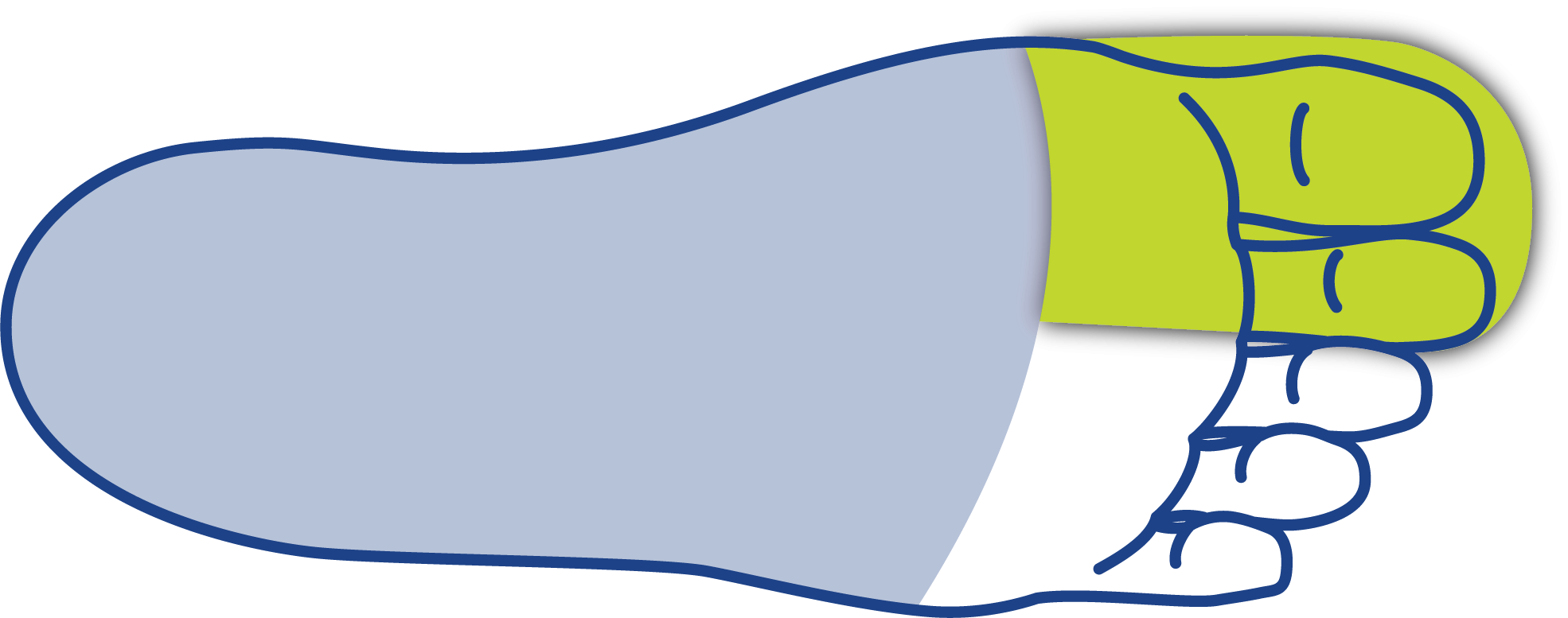
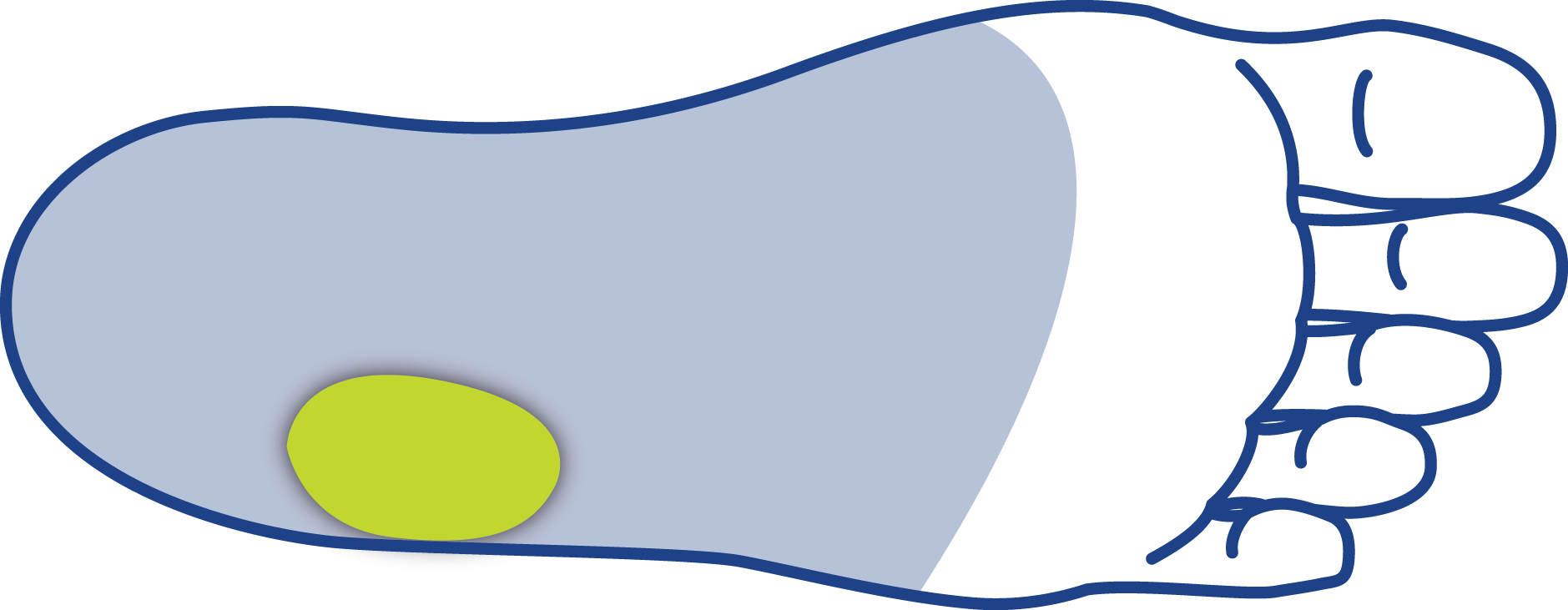
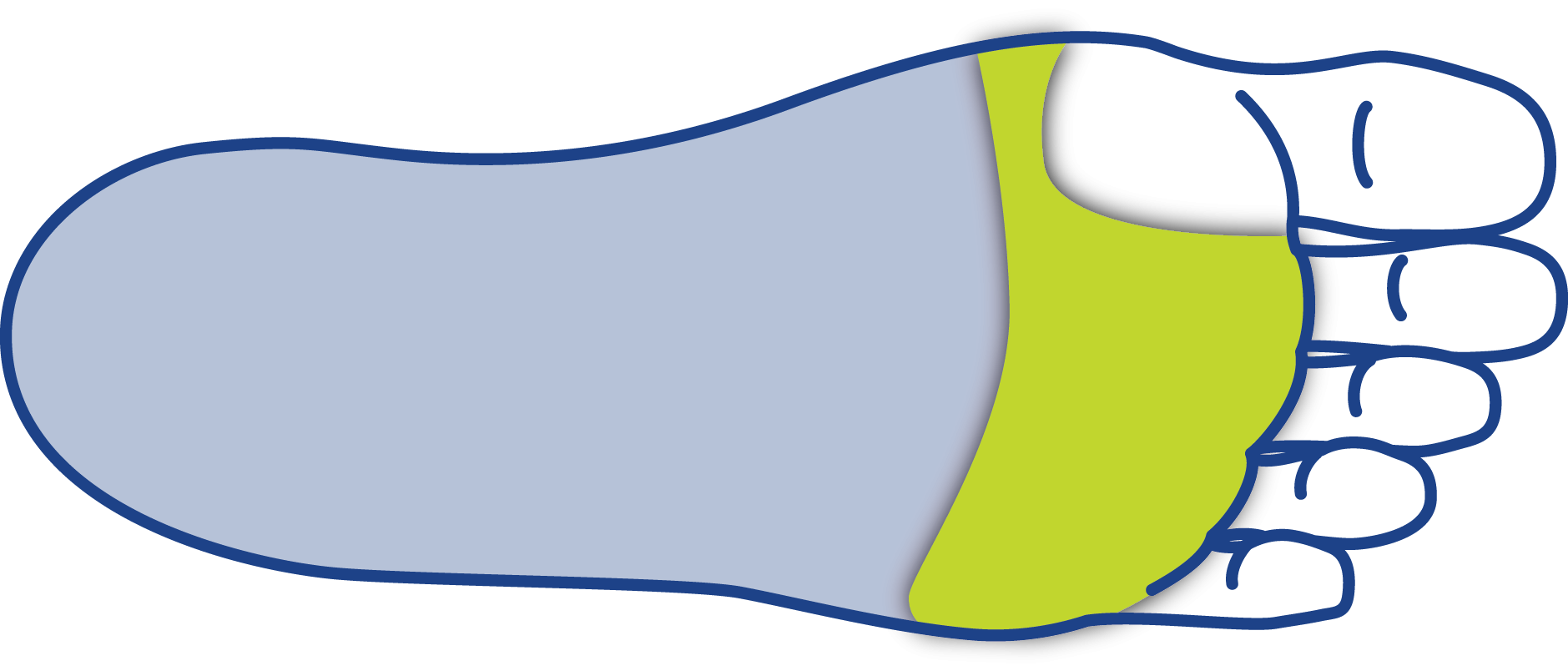
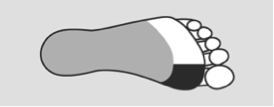
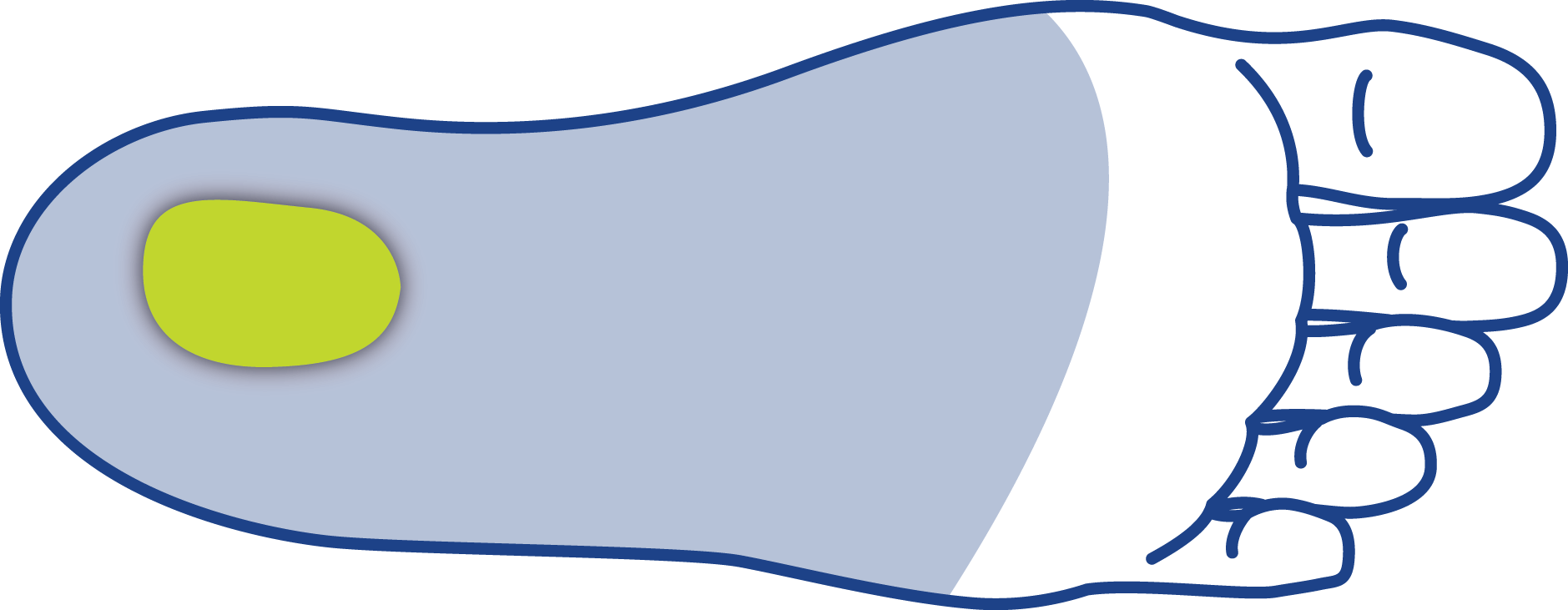
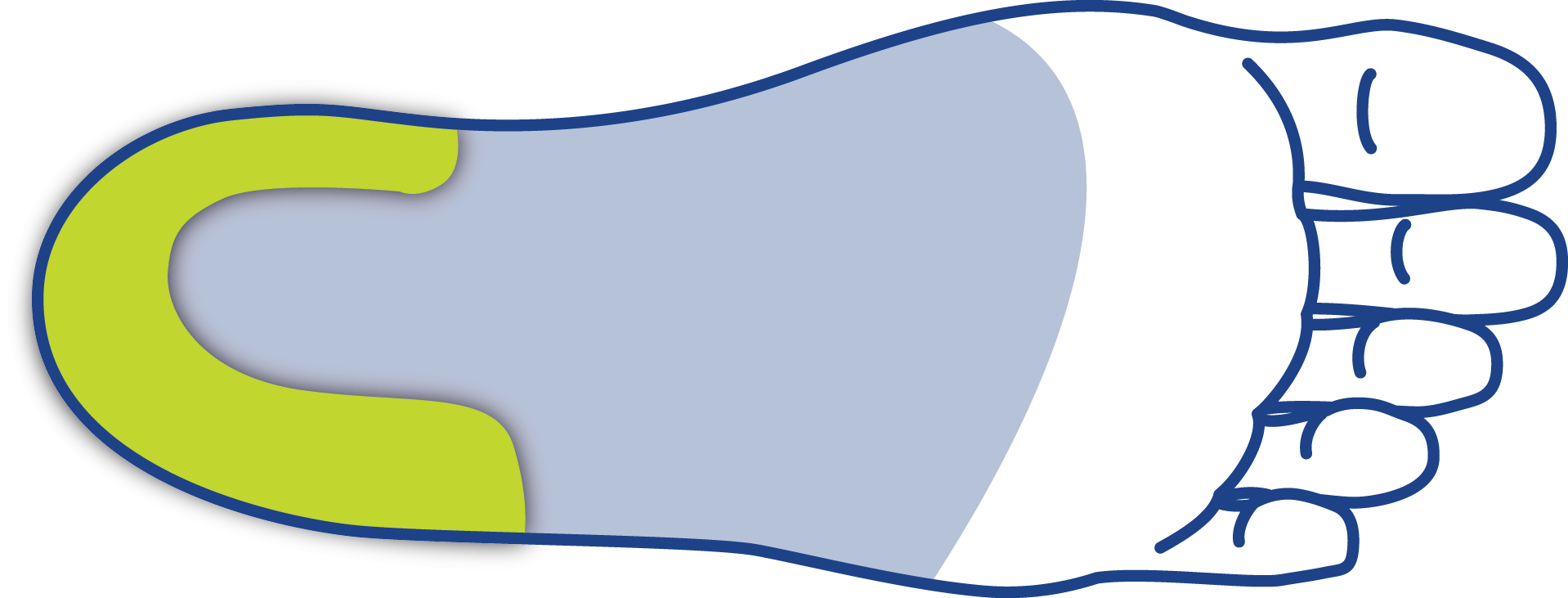
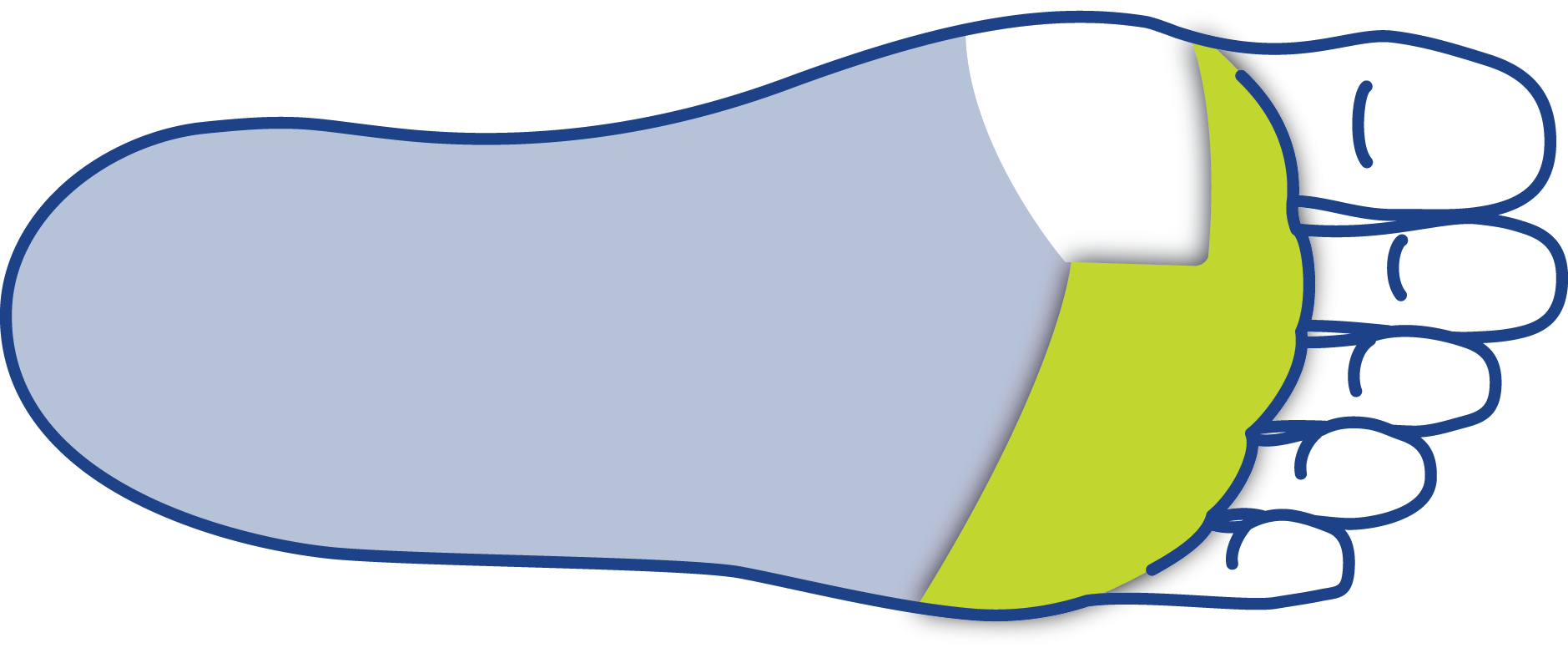

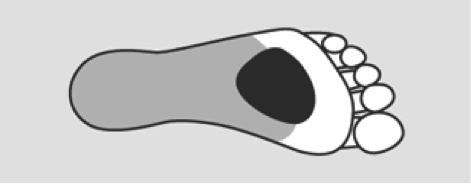
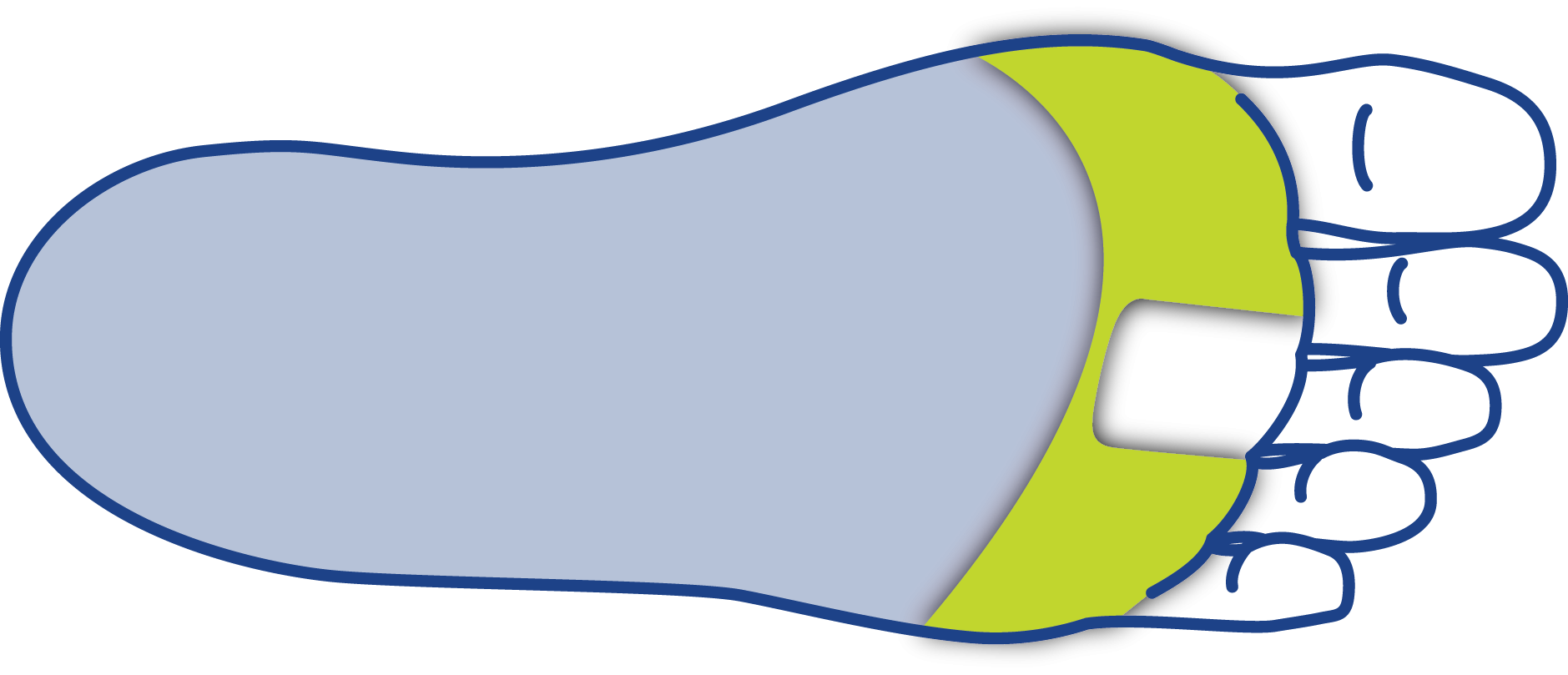
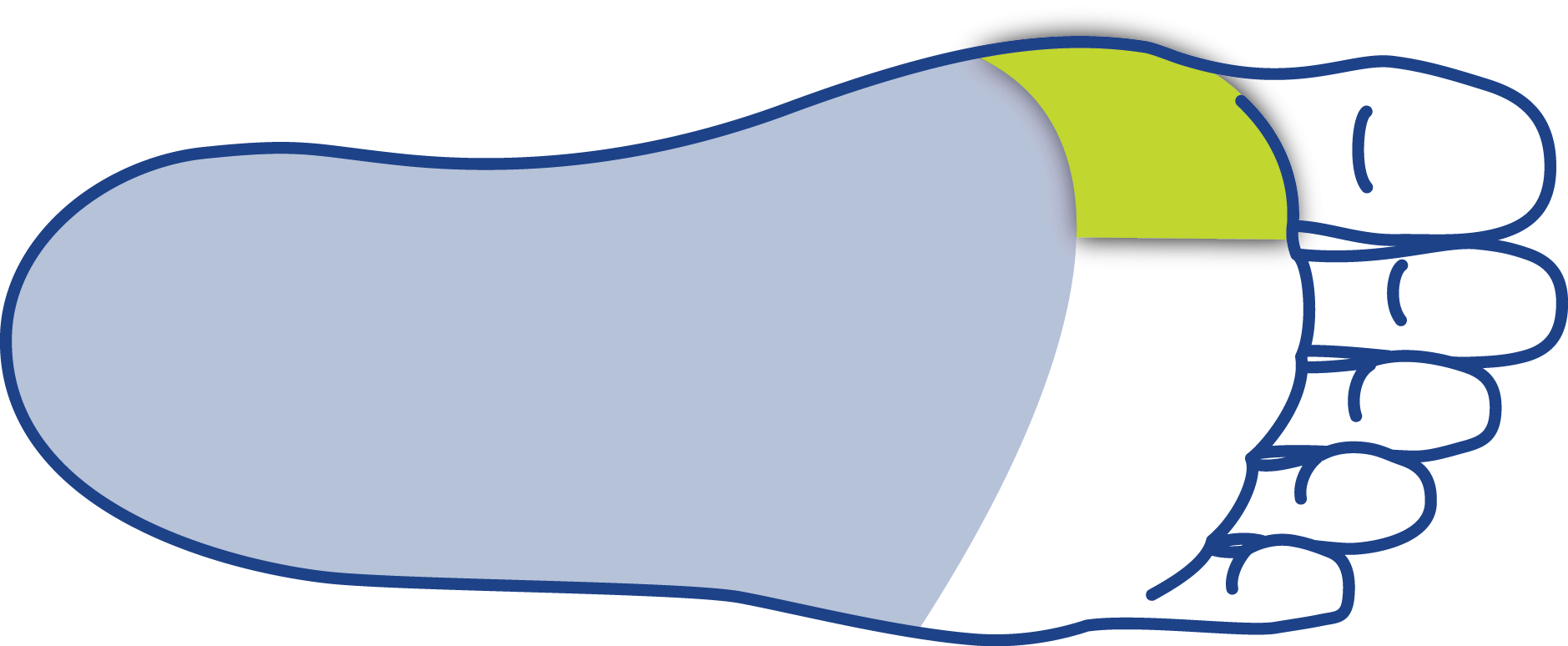
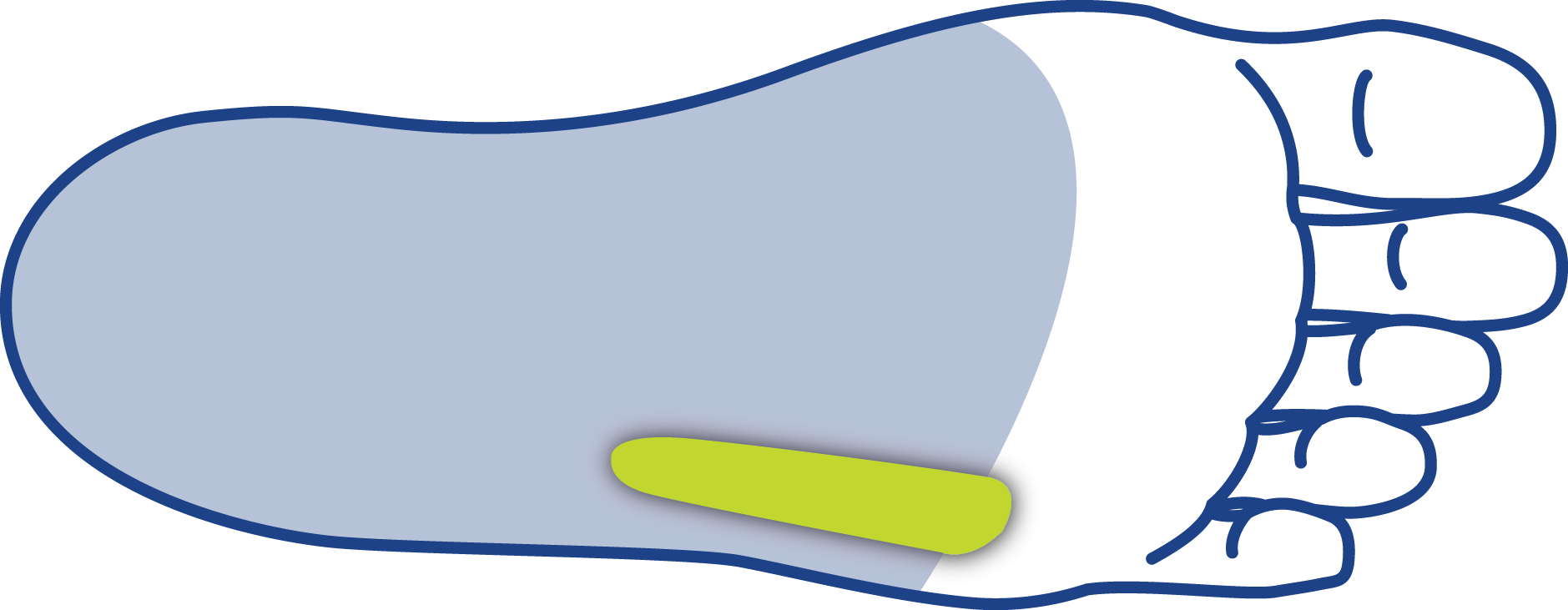
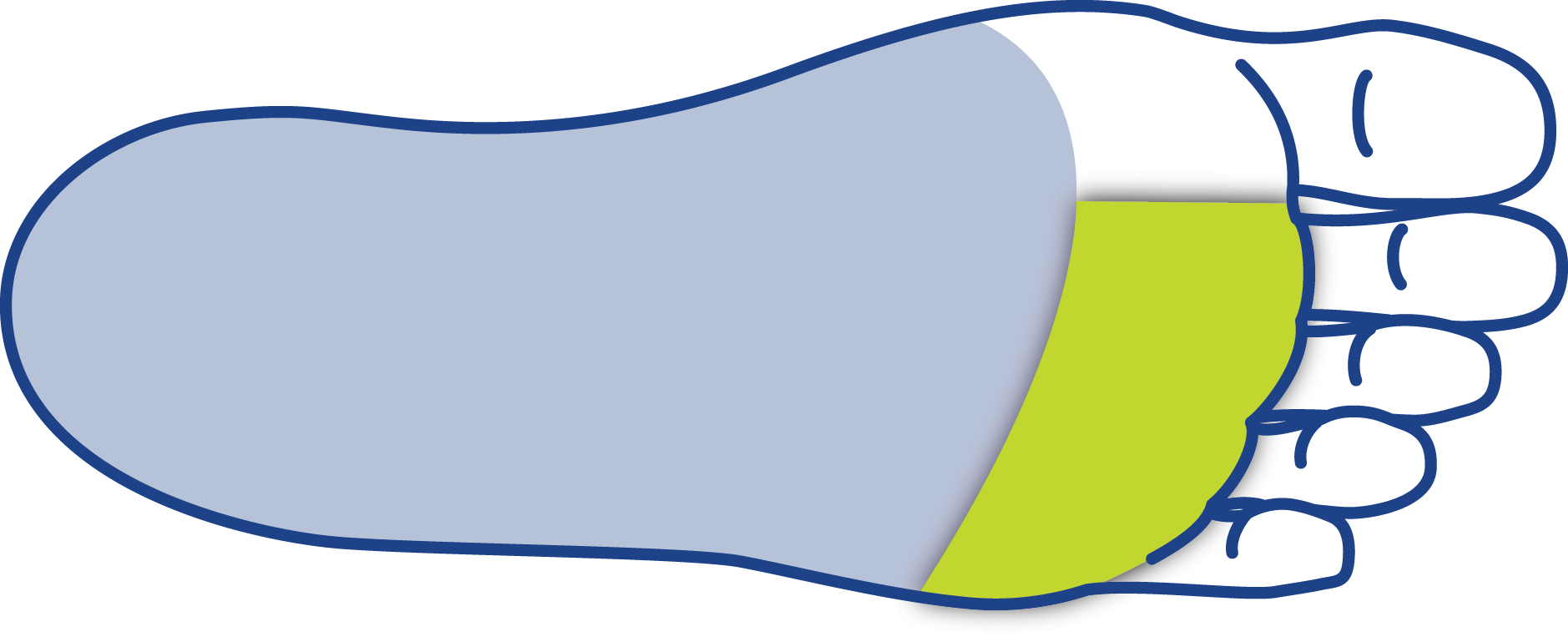
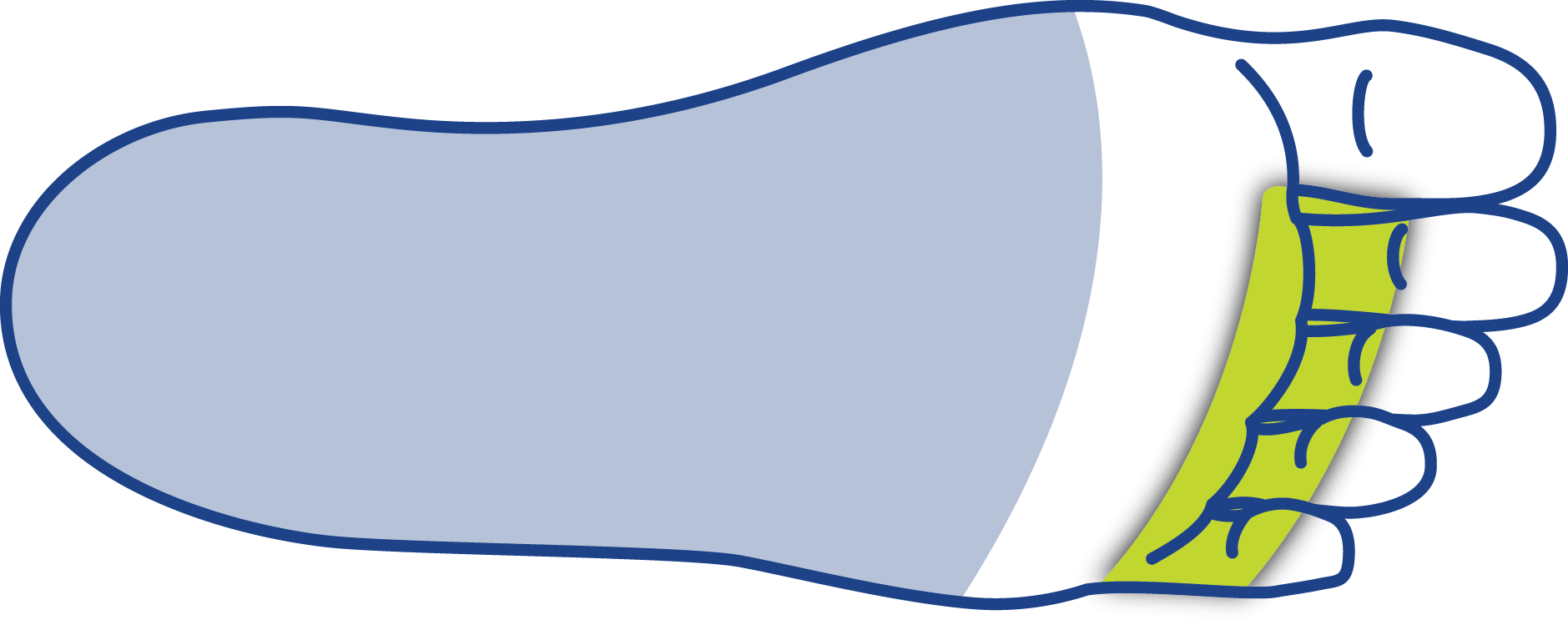
Post This!
Share this post with your friends!